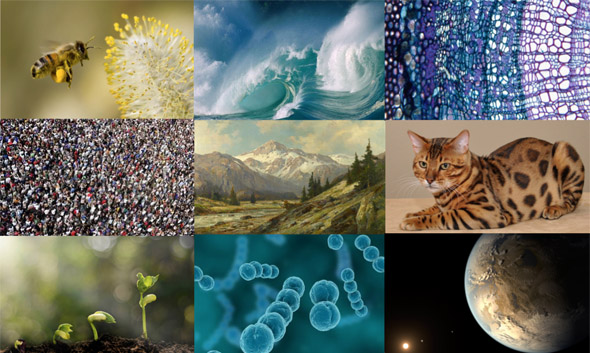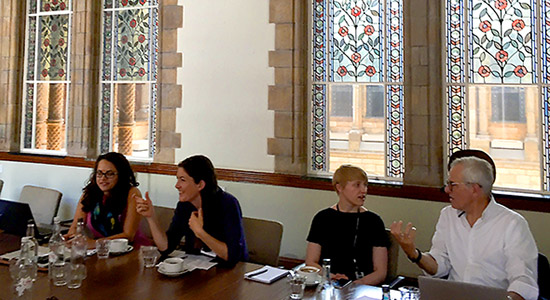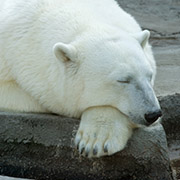Citizen Science and the Wild
Workshop convened by MIT historian Harriet Ritvo illuminates value of multidisciplinary research

"It was an unusual experience for me to be in a meeting with both historians and science practitioners, and to see the mutual illumination that was possible between perspectives from both areas. We need more such interactions, which are especially valuable as ways of bringing historical expertise to bear on contemporary issues."
— John Durant, Director, MIT Museum, and SHASS faculty member
What does "wild" mean?
When the interdisciplinary workshop “Citizen Science and the Wild” convened in London earlier this year, it drew an unusual variety of experts together, including historians of science, anthropologists, museum professionals, and scientists from MIT.
The group gathered to consider what "wild" means — particularly in the context of "citizen science," which involves sourcing data or analysis from the general public for scientific purposes. Along the way, the workshop also offered an object lesson in the benefits of multidisciplinary thinking.
Listening to one another
"There are probably many kinds of topics where people from humanistic or social science and scientific disciplines deal with subjects that in some sense are the same, but normally they're not prepared to listen to each other — or are not able to," said Harriet Ritvo, Arthur J. Conner Professor of History, who convened the workshop together with Sally Shuttleworth, professor of English literature at the University of Oxford, and Dr. John Tweddle, head of the Angela Marmont Centre for UK Biodiversity at the Natural History Museum.
"The kind of open-mindedness that I think was generally characteristic of the people who participated in this conference isn't something that you run across every day," Ritvo noted. "In a way, we were all citizen scientists and experts. That is, we were experts with regard to what we do ourselves and then we were citizens in regard to being an audience for our fellow experts from other areas."
Eight workshop participants hailed from MIT, representing a range of disciplines from anthropology to marine biology. All said the conference offered insights beyond those reflected in the talk titles — which ran the gamut from "The Social and Scientific Benefits of Local Community Monitoring and Eradication of Invasive Species" to "Naïve Observers: Amateur Truffling in Late Twentieth Century Oregon."
Because the "Citizen Science and the Wild” workshop brought together scholars from an unusually varied range of disciplines, SHASS Communications invited each of the eight MIT participants to answer the following question. In addition, for more detailed information, see the report on workshop presentations and discussions, prepared by by MIT PhD candidate Alison Laurence.
Q: What difference did it make to present your work to such an multi-discipinary audience and to participate in conversations about the work of colleagues in disparate fields?
Responses from the eight MIT participants

Some participants at the workshop in London
A: The workshop was truly unique and a highlight of my graduate school experience. It was refreshing to break completely out of my specialized 'bubble' and hear from historians, curators, writers, and others. I especially liked hearing from the science historians. They really made me think about how science has evolved, and challenged some of the assumptions I make in my everyday work. Now, whenever I hear terms that we commonly use in biology such as 'wild type,' I think twice about the implications behind these terms and how they have come to evolve. The workshop will forever shape how I think and talk about my work in the 'wild.'”
— Noelle A. Held, chemical oceanography
PhD candidate, MIT-WHOI Joint Program
A: "It was an unusual experience for me to be in a meeting with both historians and science engagement practitioners, and to see the mutual illumination that was possible between perspectives from both areas. We need more such interactions, which are especially valuable as ways of bringing historical expertise to bear on contemporary issues."
— John Durant, historian of science, museum director
Director of the MIT Museum; faculty member in the MIT Program in Science, Technology, and Society
A: "The varied perspectives of my CitSciWild colleagues were deeply useful in shaping my work, and our conversations were some of the best I’ve had in my academic career. Too often academic institutions pay lip service to their commitment to interdisciplinary pursuits, without making serious attempts to facilitate or support them. CitSciWild is an example of interdisciplinarity done right; here’s hoping we see more events like it."
— Michaela J. Thompson, sustainability
PhD '16 (MIT's Doctoral Program in History, Anthropology, and Science, Technology, and Society), Giorgio Ruffolo Post-doctoral Research Fellow in Sustainability Science in Harvard Kennedy School’s Sustainability Science Program
A: "The conference helped me reflect on the historical role of the scientist. Scientists are always thinking about the future and the present. We're not super good at historical perspective."
— Eleanor Bors, oceanography, marine policy
PhD '17 (MIT-Woods Hole Oceanographic Institution Joint Program in Oceanography), a marine policy fellow at the National Oceanic and Atmospheric Administration
A: "I think from several of the scientific talks I took away a better understanding of the tools they use to make distinctions, which is useful because I write about what they do. The current book I'm working on is about wildness and domestication and it comes all the way up to the present, so watching scientists actually apply their means of analysis and observation is very interesting to me."
— Harriet Ritvo, environmental historian
Arthur J. Conner Professor of History at MIT
A: "The workshop compelled me to think beyond the realm in which my research dictates me thinking. This has been beneficial to me in that it has helped connect the dots between my scientific research and the concerns and perspectives of broader society. ... I found the workshop to be refreshingly and invigoratingly intellectually stimulating, and I came away with an even greater interest in the overlapping grey area between the sciences and the humanities."
— Emily Zakem, biologist
PhD '17, post-doctoral scholar and research associate in the Department of Biological Sciences, University of Southern California
A: "Speaking to a multidisciplinary crowd always forces one to frame your work in different, perhaps clearer ways. You question the words that you use, the metaphors you employ, and if they actually help you get your point across, or not."
— Peter Oviatt, historian
PhD candidate, History, Anthropology, and Science, Technology, and Society, MIT
A: "When presenting within one's own field or subfield, precise critiques and suggestions for improvement are expected. At this workshop, because no one could claim overlapping expertise, pointed criticism was absent. Participants responded instead to the bigger questions and the scholarly or real world impact of these projects."
— Alison Laurence, cultural and environmental historian
PhD candidate in History, Anthropology, and Science, Technology, and Society, MIT
Suggested links
Report from the 2017 Citizen Science and the Wild workshop (PDF)
What is Wild? 3Q with historian Harriet Ritvo
Report from the 2016 What is Wlld conference (online)
Durant plans a new era for the MIT Museum

Story prepared by SHASS Communications
Editorial and Design Director: Emily Hiestand
Senior Writer: Kathryn O'Neill
Published October 2017